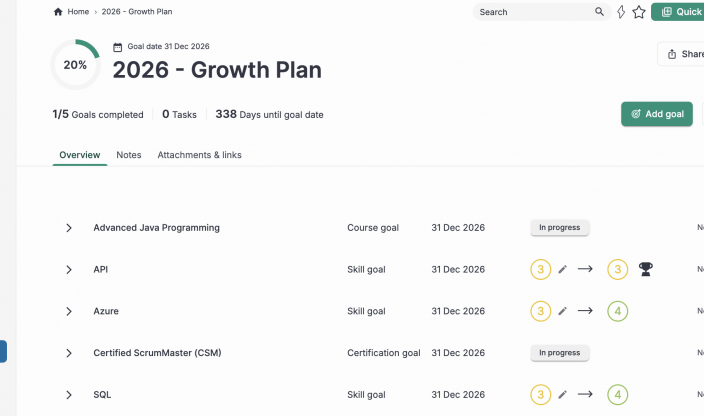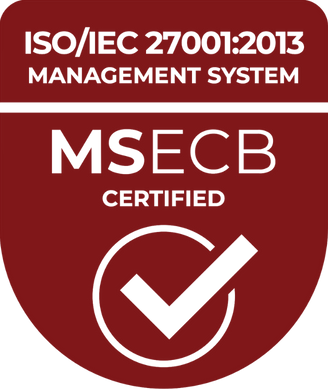The hybrid consultant creates greater value for the customers, themselves, and the consulting company

In the previous post, we introduced the hybrid consultant – a next step for the consulting industry where consultants fully embrace new technology and new ways of working to make room for humanity and to create increased customer value.
Now, we are exploring specifically how this creates value for all involved: the customer, the consultant, and the consulting company. We will delve deeper into the benefits that the hybrid consultant offers and how these benefits not only redefine expectations for consulting services but also how they are delivered and experienced.
This is the second post in a series about what a hybrid consultant entails, why it is important, and how to move towards becoming one.
If and when a transformation is to occur, it needs to happen for a reason, so let’s get straight to the point – what are the benefits of the hybrid consultant for the most important stakeholders: the customer, the consultant, and the consulting company?
The benefit for the customer
Customers face increasingly complex challenges in rapidly changing markets, where working on transformation and developing adaptability are key. The hybrid consultant creates more customer value by offering, among other things:
- Cost efficiency: Reduced hours for manual work result in decreased costs and increased focus on strategic customer value.
- More time for humanity: With the help of technology that can facilitate tasks such as analysis and administrative work, consultants have more time to contribute their human strengths, such as the ability to see and understand contexts, facilitate and support, evaluate and assess, think outside conventional frameworks, and, most importantly, exhibit social and relational skills. All of these are important foundations for creating real progress.
- Democratized processes: By using digital tools in processes, more voices can be invited in. Furthermore, these voices are given more equal weight, reducing the influence of the “Highest Paid Person’s Opinion” or the loudest voice in the room. Instead, it’s the content and ideas themselves that matter.
- Faster and deeper insights: Through AI and advanced data analysis, the hybrid consultant can deliver deeper insights faster than traditional methods.
- Faster deliveries: Reduced manual work also means that deliveries can occur significantly faster. In a world where the pace of external factors affecting a company’s operations is accelerating, the company’s own speed is increasingly crucial.
- Increased competitiveness: The above points collectively mean a greater chance of success in the changes the work aims to achieve, thereby strengthening the competitiveness of customers.
The benefit for the consultant
Consultants have much to gain from embracing the approach of the hybrid consultant. Here are some advantages:
- More effectiveness: Freed-up time from routine tasks leads to increased capacity for the human aspect of consulting, ensuring that the work results in real progress, such as supporting in engaging people and anchoring decisions. Through digital tools, knowledge and skills can also be more easily transferred to the customer (see above: More time for humanity).
- Better customer collaboration: By creating more value with the help of digital tools, the delivery shifts away from selling hours and towards selling value. This, in turn, creates better conditions for good collaboration as both parties share the same goal – delivering a lot of value in an efficient manner.
- Improved analysis: With the help of digital tools, the team can access and generate more data that can be easily analyzed, leading to better analysis and decision-making support.
- Increased trust from the customer: When a hybrid consultant quickly gains a better understanding of the customer’s reality through both environmental monitoring and deeper customer insights, it is easier to gain trust from the customer, and the consultant can thus more easily provide substantial and distinctive value.
- More time for other things: Technology saves time, time that can be used to make more of a difference for the customer, invest in other projects, sell, or why not have more leisure time?
- Future-proofs the consultant’s role: Being able to create more value for the customer, quickly and cost-effectively, will be a necessity to compete against digital services or against the customer doing the work themselves. For each individual consultant, transitioning towards hybrid consulting means future-proofing oneself!
The benefit for the consulting company
For consulting companies, transitioning to hybrid consultants represents an opportunity for:
- Innovation in service offerings: By providing a combination of advanced services that integrate digital tools, AI, and human expertise, a more attractive offering is created.
- Differentiation and positioning: Consulting firms that quickly embrace hybrid consulting will differentiate themselves from competitors by offering more effectiveness, increased speed, and greater cost-effectiveness. The increased trust in hybrid consultants will also strengthen the consulting company’s position in the market.
- Reduced dependence on individuals and greater scalability: When consulting firms do not rely solely on their consultants for their offerings and instead balance it through a combination of sharp consultants and strong structural capital, vulnerability decreases while the company’s valuation increases.
- Increased margins and profitability: Digital tools and AI significantly increase the customer value per hour worked. This, in turn, allows for higher billing rates per hour worked (not the same as billing per hour), increasing margins and profitability.
- Talent attraction: Being at the forefront of methodologies and offerings increases the consulting company’s attractiveness to talent.
- Transformation of the business model: Overall, the above points provide an opportunity for forward-thinking consulting firms to transform their business models fundamentally and find new and better ways to create value and charge for it. Part of this may involve moving towards recurring revenue streams.
The hybrid consultant is not just a title; it enables entirely new ways of creating value. As we’ve tried to demonstrate above, it means increased competitiveness for customers, as well as for consultants and consulting companies. We hope this post inspires you to explore the hybrid consulting model!
In the next post, we will take a closer look at how to leverage the new technology, focusing on tasks and tools.
Until then, please feel free to share if you see any other benefits that the hybrid consultant can bring or if there are any you disagree with! You can do so here.
/Joakim Jansson and Johan Forsberg, DigJourney
Free webinar: How Will AI Impact the Consulting Industry?

Guest Blogger - Joakim Jansson and Johan Forsberg from DigJourney
Guest Blogger - Joakim Jansson and Johan Forsberg from DigJourney
You may also like...
All posts
Jan 29 2026 · Cinode, Cinode, Consulting, Konsult
Ready for 2026? How to build a development plan that closes your skills gap

Jan 21 2026 · Consulting
Softronic’s New CEO Mattias Flock: “I Love Creating Things — That’s Why Growth Excites Me”

Dec 18 2025 · Consulting
Santa’s Letter to the Consulting CEO

Dec 15 2025 · Consulting
Building a High-Performing Consulting Firm

Dec 01 2025 · Consulting
🏆Yellow Elk Sweeps All Three Awards at Konsultkollen 2025

Oct 10 2025 · Consulting, Entrepreneurship
🚀 The Head of Analysis: Seven Success Factors for Consulting Firms 2025–2030

Sep 10 2025 · Consulting
“It’s About Growing Right – Not Fastest” – Netlight Scales Up with Culture and AI in Focus

Aug 21 2025 · Cinode, Consulting
🚀 A Clear View and Fast Execution – Our Journey with Cinode

Apr 30 2025 · Consulting
Understanding the psychology behind pricing

Apr 15 2025 · Consulting
How to set (the right) price?

Mar 18 2025 · Consulting
How do we charge for the value of our services?

Mar 11 2025 · Consulting
